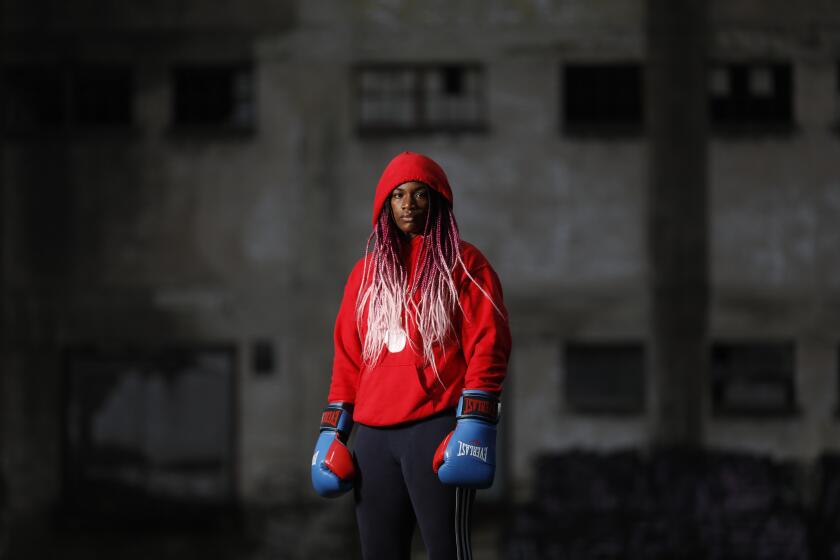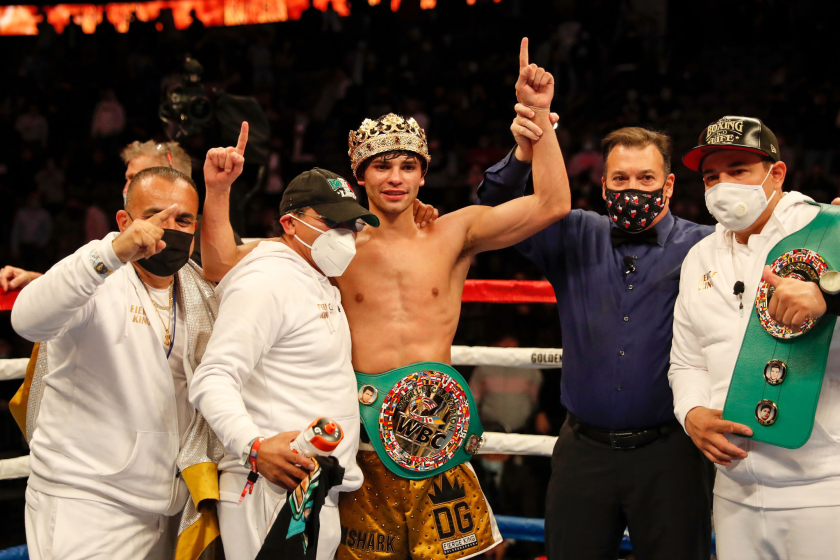Claressa Shields attempts to add to her legacy with pay-per-view event
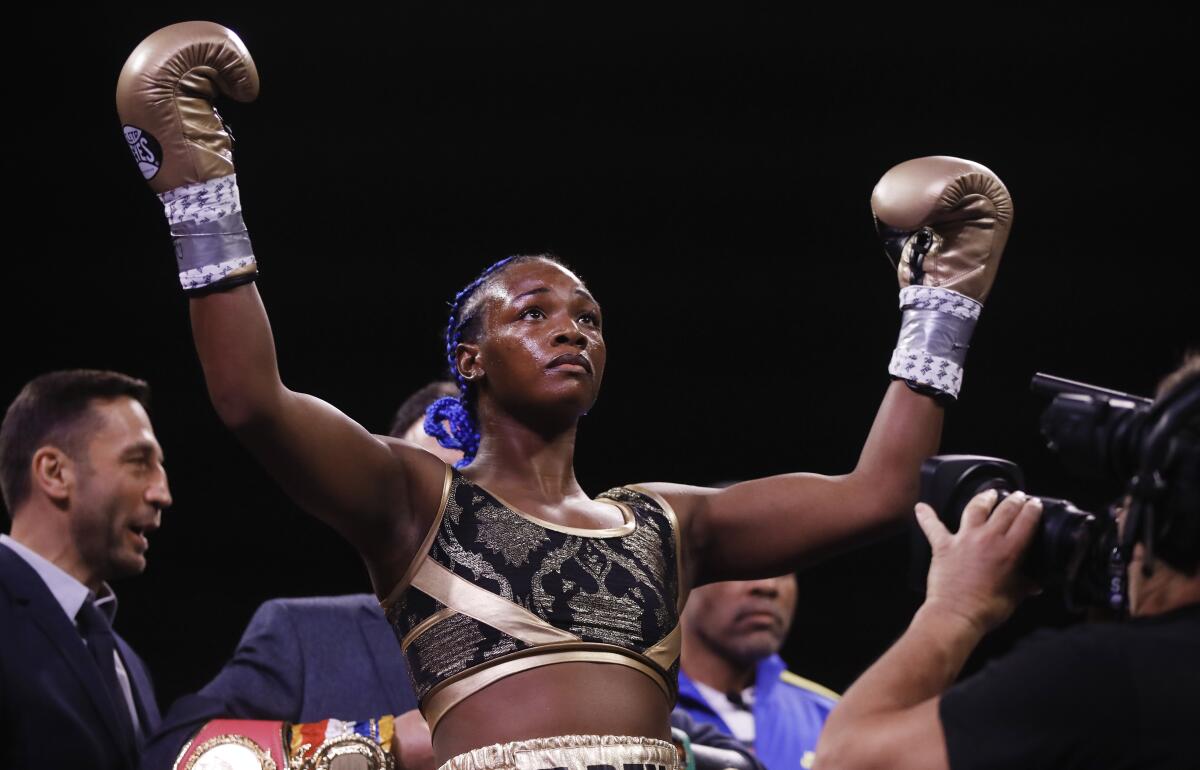
- Share via
This is a story about inequality, about biases that remain and how their effects are magnified in times of crisis.
This is also a story about faith, about a boxer who views a recent setback as a potential godsend and a devout promoter who is taking a major financial risk because he believes that part of his life’s purpose is to remove the obstacles in front of her.
This is the story of Claressa Shields.
And if her career unfolds as she and her promoter envision, if she succeeds in elevating women’s boxing, Friday night will be a significant part of the two-time Olympic gold medalist’s legacy. On that night, the undefeated Shields will take on fellow light middleweight champion Marie-Eve Dicaire in the main event of an all-female pay-per-view card in her hometown of Flint, Mich.
Mike Tyson fought on pay-per-view. Oscar De La Hoya and Floyd Mayweather Jr. did too. The sport’s powerbrokers figured that revenues for major fights could be maximized if they charged $40 to $100 per household rather than accept a flat fee from a television network.
Claressa Shields delivers messages more powerful and persuasive than her devastating right cross.
The vehicle was almost a last resort for Shields. In a pandemic-stricken world, there have been fewer chances for boxers to appear on major television or streaming platforms. The already-scarce opportunities for female fighters became virtually nonexistent, even for someone such as Shields, who in 2017 became the first woman to headline a show on premium cable.
Unable to convince any of the sport’s major broadcast partners to buy her upcoming fight, Shields is wading into the unpredictable waters of pay-per-view, in which her earnings will be determined by the number of people who purchase the show.
“I don’t want to have to depend on a network to get me a fight,” she said in a recent phone interview from her training camp in Florida.
The freedom comes with a potential downside, however.
“We’re all taking a gamble,” she said.
Especially her promoter, Dmitry Salita, himself a former world-class fighter. Salita’s promotional company will finance the production of the pay-per-view broadcast, which will be distributed online by Fite TV and on cable by In Demand. While planning the show, Salita relied on the expertise of Shields’ manager, Mark Taffet, a former HBO executive who launched the premium cable network’s pay-per-view arm.
“I believe in Claressa,” Salita said. “I believe there is a platform for her.”
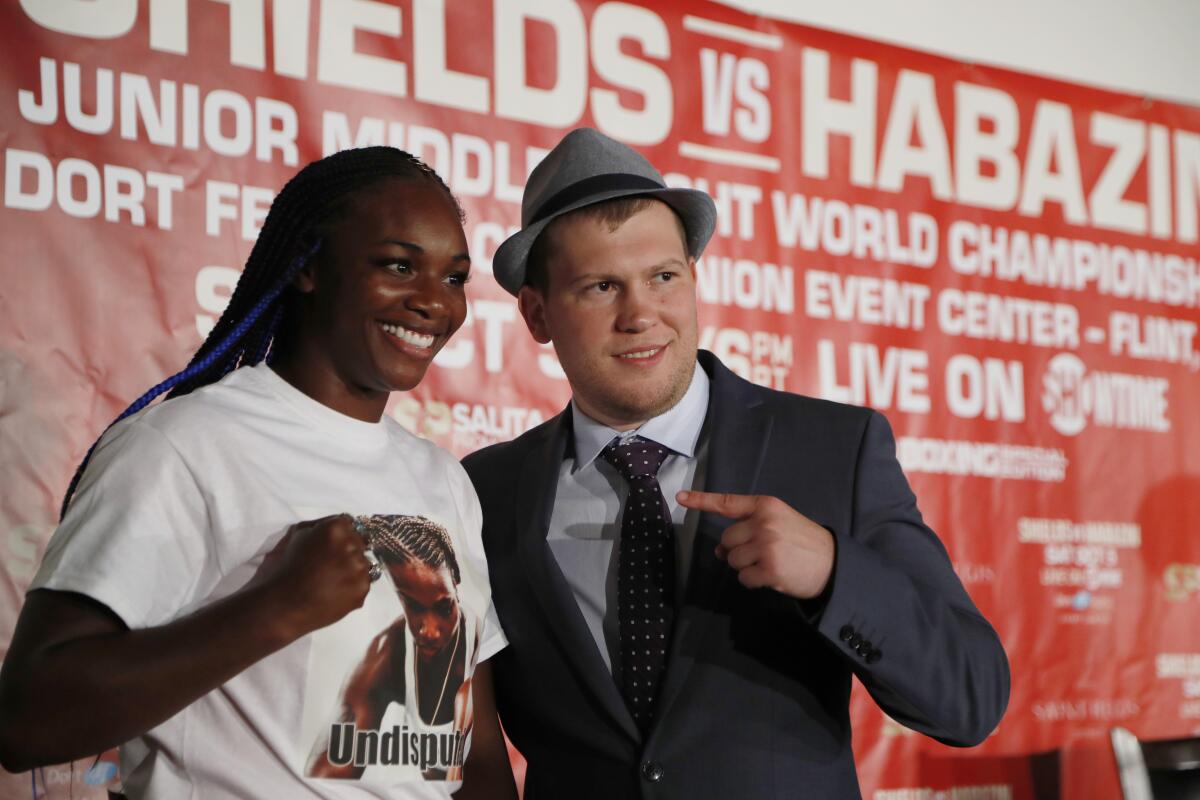
By the time the 25-year-old Shields shares the ring with Dicaire, she will be almost 14 months removed from her last fight. The contest was originally scheduled for May of last year, with Showtime paying her a reported $400,000. The COVID-19 pandemic forced a cancellation.
When the sport restarted, it didn’t matter that she was the only American fighter, male or female, to medal in consecutive Olympics. Or that only 10 fights into her professional career, she won championships in three separate weight categories. Or that her previously televised fights on Showtime had attracted enough viewers to satisfy executives.
Shields couldn’t find anyone to pay her what she believed she was worth.
“I reached out to different platforms,” said Salita, her promoter. “We couldn’t make it happen.”
Meanwhile, mediocre male fighters were awarded coveted assignments on television and streaming services.
As a recent homebuyer, Shields had a mortgage to pay. There were also training-related costs, including that of a strength and conditioning coach.
“I don’t know what the numbers will be for my fight, but whatever they are, I’m going to build off of them. That’s just where you start.”
— Claressa Shields
Shields became an online workout instructor, offering one-on-one sessions.
“I would train like six or seven people a day,” she said. “I did that for a month or two.”
She found time to sign with a minor mixed martial arts promotion and went to New Mexico to train with the likes of former UFC champions Jon Jones and Holly Holm. She plans to make her MMA debut this year.
Shields recognized that others had it worse; she at least had money set aside. She estimates that she spent about $50,000 of her savings last year.
She was initially frustrated by her predicament, but the prospect of headlining a pay-per-view offered her a new perspective.
She now has more responsibility, but more control as well. So long as she continues fighting on pay-per-view shows funded by her promoter, she will have greater say over when and where she fights and against whom. (A spokesman for Showtime said the network is open to airing Shields’ fights again in the future.)
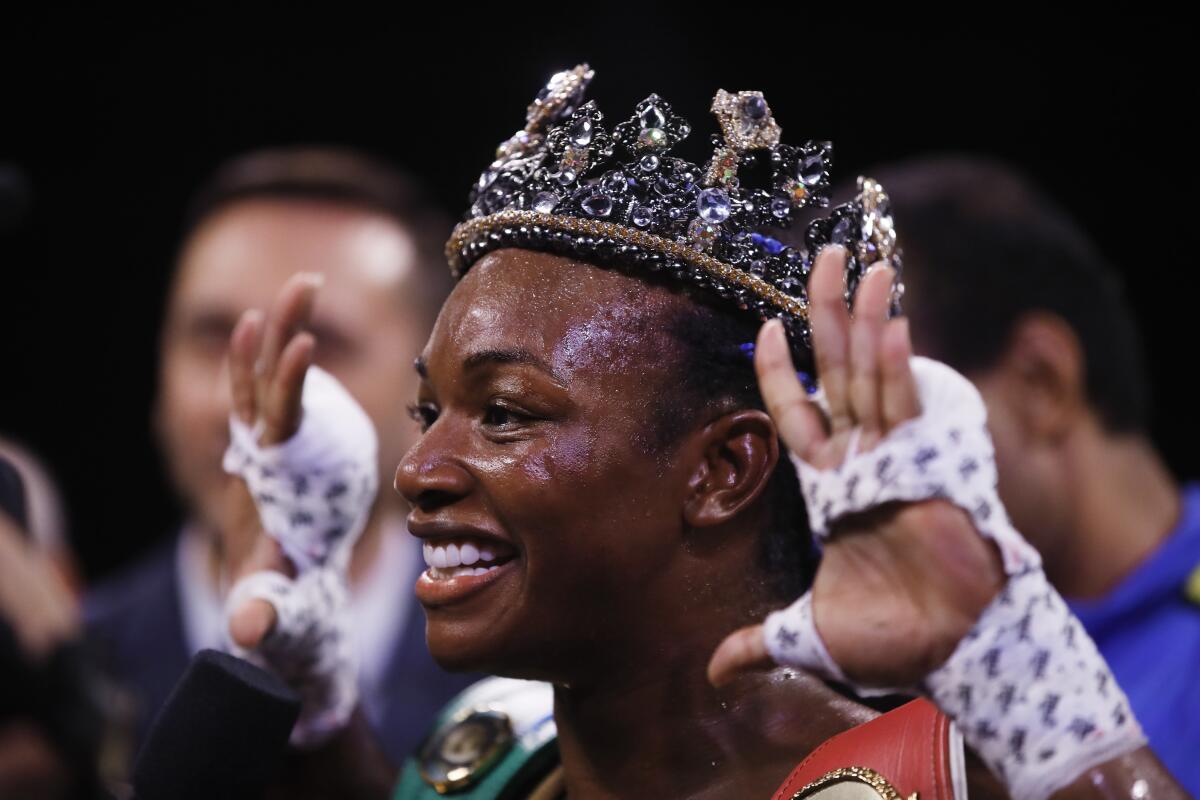
“I don’t know what the numbers will be for my fight, but whatever they are, I’m going to build off of them,” she said. “That’s just where you start.”
As she thought of how her success could change the economic landscape for women’s boxing, she became convinced in the involvement of a higher power.
“I feel like God shut one door to open up a better door,” she said.
She thinks she’s seen this before. She was born into poverty and is a survivor of sexual abuse. She’s now on the verge of becoming the only fighter of either gender to be a unified champion in two weight classes at the same time during the four-belt era.
Ryan Garcia, a 22-year-old from Victorville, was knocked down but recovered to beat Luke Campbell. The rising star is not a finished product, though.
Salita also is inspired by his faith. A practicing Orthodox Jew, Salita nearly cost himself an opportunity to win a national championship as an amateur because of his refusal to fight during the Sabbath.
In regard to Shields, Salita said, “Certainly, I feel responsible to do the right thing.”
The question is whether the right thing is smart business.
The industry is watching how Shields’ pay-per-view show performs. Success could change not only her career, but also that of other female fighters.
More to Read
Go beyond the scoreboard
Get the latest on L.A.'s teams in the daily Sports Report newsletter.
You may occasionally receive promotional content from the Los Angeles Times.

